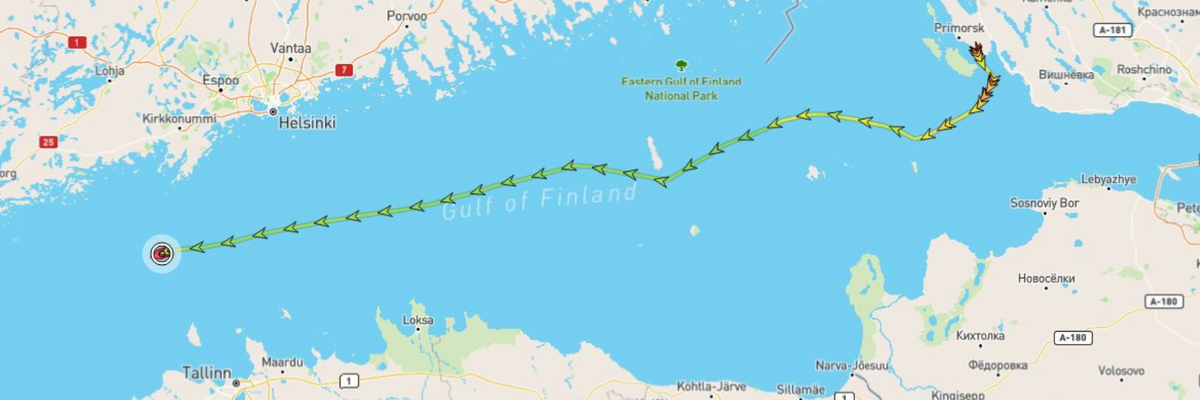Inspired by a Florida teenager who tracks U.S. and Russian oligarchs' private jets, Greenpeace U.K. on Friday began identifying, tracking, and publishing the location of Russia-flagged ships transporting fossil fuels following President Vladimir Putin's invasion of Ukraine.
"Europe is set to spend up to EUR285m per day for Russian oil, which props up his war effort while our bills continue to soar."
The green group says it has identified at least 148 Russian oil and gas supertankers since February 24--when Ukraine was invaded on Putin's orders for the second time since 2014--and has published a "Russian Tanker Tracker" on Twitter.
"The huge number of tankers criss-crossing our seas loaded with Russian oil and gas is a tangible sign of our dependence on fossil fuels and proof that it is the biggest contribution to Putin's war chest," Rosie Rogers, head of energy at Greenpeace U.K., said in a statement.
The group says it was inspired by the efforts of U.S. teenager Jack Sweeney, who first gained widespread attention after he rejected a $5,000 offer from Tesla Motors and SpaceX CEO Elon Musk to delete a Twitter account monitoring the location of the centibillionaire's private jet.
Sweeney has subsequently tracked and published the locations of "Russian Oligarch Jets" following the Ukraine invasion. He has also started a "Russian Yachts" tracker, although it is not yet automated.
To track Russian tankers, Greenpeace U.K. uses MarineTraffic API, a cloud-based solution that determines ship positions from onboard transceiver and port call data.
Russia is the largest source of European Union fossil fuel imports, with the country providing around 40% of the 27-nation bloc's fossil gas, more than a quarter of its crude oil, and nearly half of the coal it imported in 2019.
"Europe is set to spend up to EUR285 million per day for Russian oil, which props up his war effort while our bills continue to soar," Rogers said. "Europe must stand by the people of Ukraine by pulling every stop to finance Putin's war machine and get off gas and oil."
"We need to be getting off gas altogether and we have the technologies to do it."
"We need to be getting off gas altogether and we have the technologies to do it," she asserted. "All we need is the political will of the E.U. to carry out an unprecedented program to free Europe from its gas dependence, no matter where it comes from."
"We need an emergency plan to insulate homes, rapidly transform public transport to run on renewable energy, and boost ever-cheaper solar and wind power," she added. "This will create jobs, lower energy bills, tackle the climate crisis, and cut our dependence on imported gas."
Last week, Greenpeace activists confronted a Russian LNG tanker at sea after union dockworkers refused to unload it at Isle of Grain in the United Kingdom.

